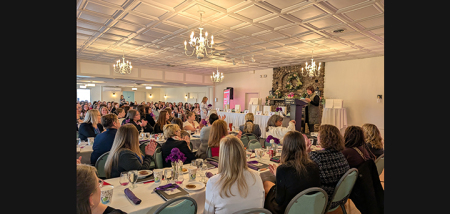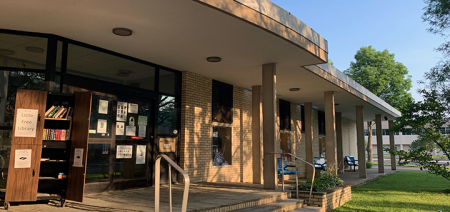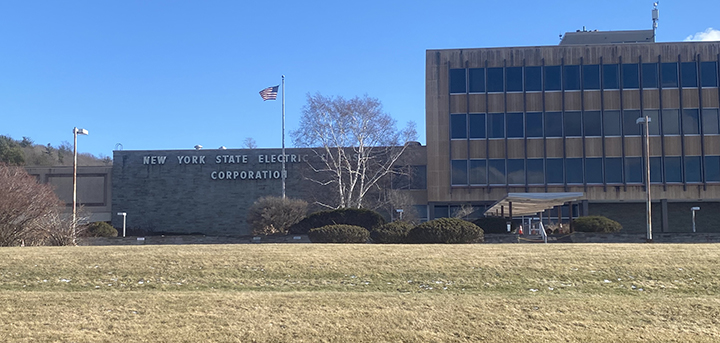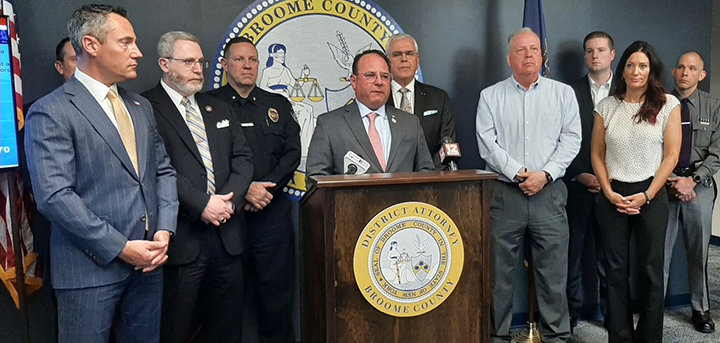Officials Ask That County Residents Abide By Burn Ban
Published:
March 29th, 2021
By:
Zachary Meseck
 Above local firemen practice their skills from previous year's training course. statewide burn ban is currently in effect, and local fire department officials are asking that individuals avoid creating fires that are more than three feet in height and four feet in length, width, or diameter until May 14. (Photo by Zachary Meseck)
Above local firemen practice their skills from previous year's training course. statewide burn ban is currently in effect, and local fire department officials are asking that individuals avoid creating fires that are more than three feet in height and four feet in length, width, or diameter until May 14. (Photo by Zachary Meseck)
CHENANGO COUNTY – Fire department and NYS Department of Environmental Conservation representatives are asking that individuals abide by the burn ban which remains in effect until May 14.
According to City of Norwich Fire Department Chief Jan Papelino, there have been brush fires all over the county this year, with a small brush fire occurring in Norwich early last week.
Papelino said a 911 call was received at approximately 4:57 p.m. on Tuesday near the football field in the City of Norwich.
“It was right along the fence, there were a bunch of leaves piled up at the time and we believe the cause was improperly disposed of smoking materials,” said Papelino. “The wind speeds have been pretty high lately, which makes brush fires spread faster.”
“People just have to realize, the burn ban means you can still have a small fire for cooking, but you can’t have a big bonfire just for the sake of having a big bonfire.”
He said the burn ban has been in effect since March 16, but departments are still having trouble with people burning things in burn barrels or setting fires that they shouldn’t be setting.
He added that in his experience, since the New York State Department of Environmental Conversation (DEC) started the burn ban, the number of brush fires in early spring have decreased considerably.
“There’s one that I recall a number of years ago, where a gentleman had a burn barrel near his home that ended up burning his house down,” said Papelino. “The wind was blowing, and it was a dry day.”
“It caught the grass near the barrel on fire, then it spread to the garage, and the house.”
According to DEC Commissioner Basil Seggos, conditions for wildfires are heightened in springtime, which is when most wildfires occur.
Seggos said New York prohibits residential burning for two months starting on March 16, when dry conditions are highest.
“Even though some areas of the state remain blanketed in snow, warming temperatures can quickly cause wildfire conditions to arise,” said Seggos. “Open burning of debris is the largest single cause of spring wildfires in New York State.”
“When temperatures are warmer and the past fall's debris and leaves dry out, wildfires can start and spread easily and be further fueled by winds and a lack of green vegetation.”
He said in 2020, DEC Forest Rangers extinguished 192 wildfires that burned a total of more than 1,122 acres. He added that in addition, local fire departments, many of which are volunteer, all too often have to leave their jobs and families to respond to wildfires caused by illegal debris fires.
“New York first enacted strict restrictions on open burning in 2009 to help prevent wildfires and reduce air pollution,” said Seggos. “The regulations allow residential brush fires in towns with fewer than 20,000 residents during most of the year, but prohibit such burning in spring when most wildfires occur.”
“Campfires using charcoal or untreated wood are allowed, but people should never leave these fires unattended and must extinguish them.”
Seggos said burning garbage or leaves is prohibited year-round. For more information about fire safety and prevention, go to DEC's FIREWISE New York website.
He said Forest Rangers, DEC Environmental Conservation Police Officers (ECOs), and local authorities enforce the burn ban. He added that violators of the State's open burning regulation are subject to criminal and civil enforcement actions, with a minimum fine of $500 for a first offense.
To report environmental law violations call 1-800-TIPP DEC (1-800-847-7332), or report online on DEC's website.
Author: Zachary Meseck - More From This Author
Comments



.jpg)





